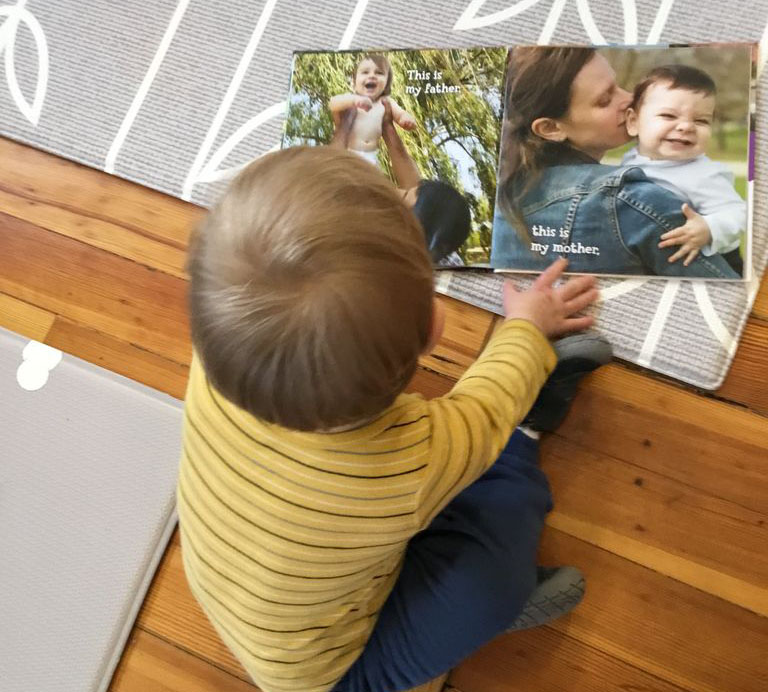At Ethos, we understand and hold close to our hearts the wellness of all our Ethos family members, especially our young learners. You may have noticed changes in your child’s behavior during these times. This issue is dedicated to helping you help your child to cope with the current COVID-19 situation.

Talking About COVID
When disruption happens, we speak of returning to normalcy, but the change should also be acknowledged. Children who learn about why there is displacement and change in a hard time have better coping skills and learn to plan for the future. Preschool and school aged children need to understand why they don’t attend school the way they do and also the reasons for social distancing and how they can prevent spread. Even if your child is below a school age, talking about what’s happening can make the parent feel better as well. While you should address the situation, limit the amount of COVID-19 news you consume, as a family, especially in front of your children. Even if they are not watching, it does not mean they are not listening.
Stories for talking about COVID:
Below is a suggested way to talk about COVID with children.
“There is a new virus called the coronavirus that you may have heard about. Scientists and doctors think that most people will be ok, especially kids, but some people might get pretty sick. We are all going to do our part to not spread the germs that cause the virus, so we’re staying home from work and school for a few weeks. We’ll go back to our usual routine soon, but until then, we get to spend some time together. Mom/Dad/Caregiver will need to work sometimes, and you get to learn at home too. We’re going to make a plan together for when we’ll work and when we’ll play.”
For more information, visit “Talking with children about Coronavirus Disease 2019.”
Emotions
Emotions can run very high in stressful times. Create a feelings chart or use stickers or pictures to help your child communicate how they are feeling each day. This can help manage emotions. Use books and pictures to discuss emotions like angry, scared, and worried. For more ideas, here’s an article on expressing and identifying emotions.
Parent Well-Being
Young children are amazingly tuned into the behaviors and emotions of caregivers in their lives including parents, grandparents, relatives, teachers, and other adults. Your baby pays attention to how you handle everyday problems and interact with family members, friends, and others. By watching you, your child learns coping skills for life. Their ability to self-regulate is first and foremost supported by the caregiver’s responsive, warm, and nurturing manner towards the child. Your well-being is just as important as your child’s. Practice self-care in ways that work for you. For ideas, read below!
Self-care for my caregivers:
- Practice gratitude
- Take hot showers
- Get perspective
- Keep a regular routine
- Call a loved one
- Take a solo walk
- Engage your senses by cooking a nice meal
- Notice where you are holding tension in your body and release it
- Focus on your breath
- Meditate. If you can find five minutes, Click HERE, have a seat and take some deep breaths during this guided meditation by Miss Maggie. Or use this Free Meditation app
Self-care for Me!
- Play in nature
- Do projects to help others.
- Ask me a daily question: “What was the best part of your day/the worst part of your day?” “Name one thing that felt good today and one thing that felt hard?” “Name one kind thing you did today.”
- Create a daily schedule with me. We can draw pictures (or get them online) of each “activity” so I know when I can expect each thing to happen. It might be nice to include the activities similar to what I do at Ethos.
- Make a Glitter Jar
- Practice snake breath with Miss Maggie
Lastly parents, we invite you to take a moment to appreciate that so much of what you already do every day makes your relationship with your child even stronger! You give your child a sense of confidence, nurture them, and encourage them to move forward and thrive.
As always, we are here for you, your families and your child. You are welcome to schedule time with your teachers if you need it! Any time.
Till Next Post,
Aleezeh Makani
Ethos Early Learning Center Educator
05/10/2020